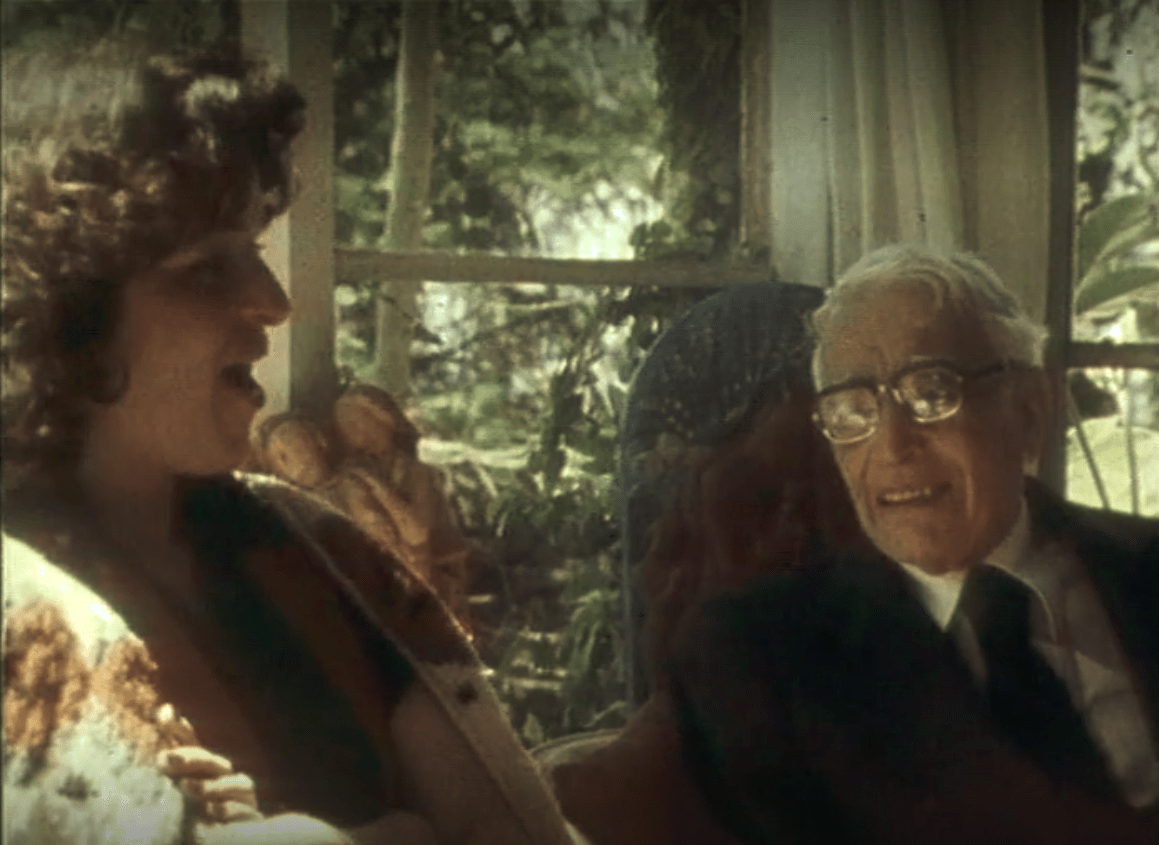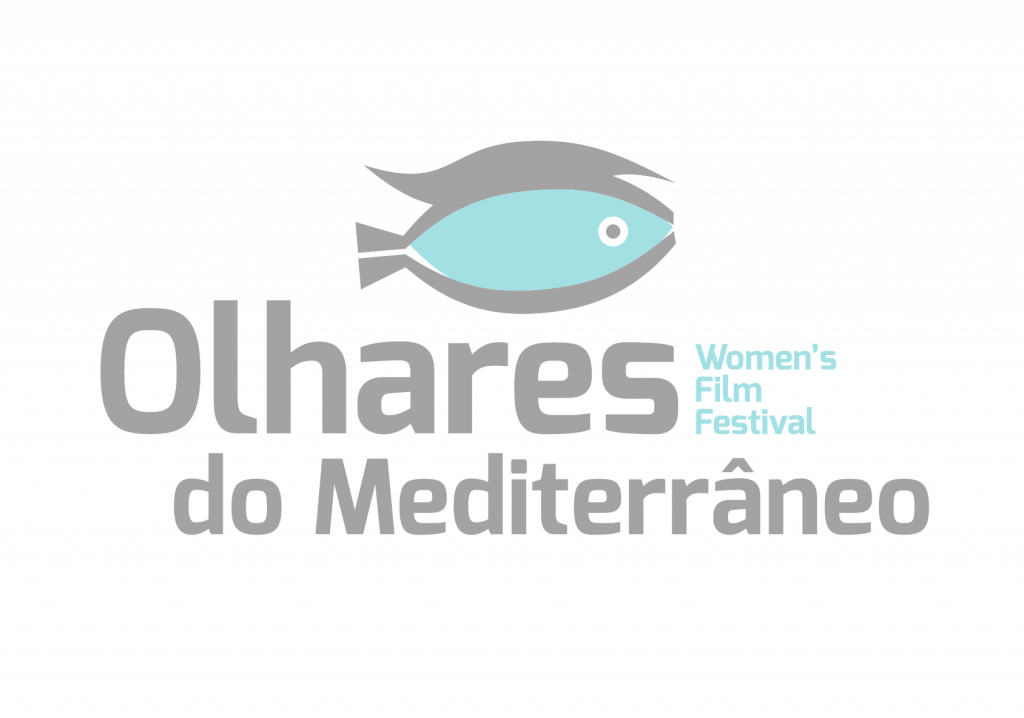
Film directed by the filmmaker in an interview with her father, the sculptor Ernesto Canto da Maia. Parts of the interview were isolated and were used as part of the movie Hymne d’Amour [Love Anthem] (1991).

Organized as if it were a message to a young girl about the traditions of her people, the video tells the story of the community that came from Okinawa (archipelago located 600-kilometre from the coast of Japan) to Brazil, and shows the role of dance and music in preserving their identity. Includes statements by immigrants and their Brazilian descendents.

The film Hymne d’Amour results from the director’s research on her father, the Azorean sculptor Ernesto Canto da Maia (1890-1981). It includes excerpts from a documentary filmed in the Azores by Isabella Kent (1944-2022) before her father’s death, as well as a biographical background after his death. The director interviewed several people, including art historians and family members, and traces the artist’s path, while investigating her own relationship with him.

An indefatigable Brazilian filmmaker in Paris, whose grandparents fled Budapest for Rio in 1937, investigates her Jewish and Hungarian roots in this energetic documentary.

In the childhood circus, time stops for a last dance under the big tent. Juggle with the images, the memories, the dreams, the fears, the desires and the stories that we tell ourselves before we fall asleep.

The film portrays a granddaughter and her grandfather, a hatter, becoming closer. Through visits to old workers, going through the grandfather’s drawers and cupboards, machine pulleys, the narration, and images of old stories, it captures the passage of time, the feeling and subtleties of family relations and the relationships built in that old factory.

The life and work of Brazilian film director and writer Luís Sérgio Person is presented in this fascinating documentary/tribute written and directed by his daughter Marina Person. She interviews actors, family members and friends who worked with him.

Using home movies and other media, a filmmaker returns to Sintra, Portugal to search for memories of her late husband, Brazilian filmmaker Glauber Rocha.

Mozambique, 1960, just before the beginning of the war, portrait of a colonial family. A sequence of archive footage filmed by my grandfather, former colonial administrator, is the point of departure for an experimental documentary on the history of the Portuguese decolonization and its memory. Double memory or memory split in two: the lived and descriptive memory of the colonizers (their texts, their images) versus the invented memory of their descendants. This film is an attempt to represent my indirect memories of Mozambique.

In Undertow Eyes, Vera and Gabriel, an elderly couple, navigate through past and present, telling their own life story. Their remembering, rendered in images from family archives that confound themselves with images of the present, suggests a personal diary on love and death.

At her mother’s wake, the filmmaker’s uncle tells her a surprising story: when young, her father had been a rich man, he had had some kind of mysterious problem and ran away to Mato Grosso. The filmmaker starts to investigate her father’s past, in the 40s and 50s and ends up finding out a family secret.

Zélia Maria, from the Brazilian State of Pernambuco, moved to Sao Paulo after her wedding in 1966. Her husband had found a job in the ABC region of São Paulo. The raw material of “Querida Mãe” are the letters that Zélia wrote to people in the city of Recife that year, and the memory built up by the director, based on the texts of the letters.

In this autobiographical film, a diasporic Brazilian family is reunited. All five siblings, at one time or another, have established themselves abroad. While exploring the reasons behind this connection to the foreign in her family, Andréa, a filmmaker living in Amsterdam, interviews the members of her family. They all evoke a psychotic crisis their mother had five years ago. Edith, Andréa’s Jewish mother, was three years old when her parents escaped from Nazi Germany in 1939. The question of the migratory now turns both backwards and forwards, and danger becomes as potent a motive as attraction to foreign places.
Institutions involved:





Partners:







